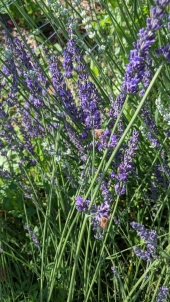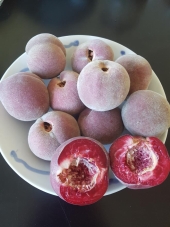








Arthur Wierzchos wrote:Looking at my Permacopia book to see what might be helpful for you Tim.
According to this resource:
Lavender originates from the Mediterranean highlands.
It prefers soil that is loose, fast draining, mineral rich, more alkaline, on the drier side, and of average or poor quality. Compost is not recommended, but decomposed granite or gravel is great. Acidity, waterlogging, and humusy soil are not good.
Full sun.
Watering should only be occasional, but deep. No fertilization.
If you plan on starting from seed they won't be true, but they do stay viable for a long time (it doesn't say how long). Germination can take a few weeks.
Looks like there are a lot of species to play with. Do you know which one(s) you are getting?

Bojana Vojvodic wrote:Hi!
Concrete question here: does anyone have heirloom, untreated blackboy peach seeds they could sell me? I would REALLY appreciate this. They aren't so easy to attain.
Thank you!

Bojana Vojvodic wrote:Hi!
Concrete question here: does anyone have heirloom, untreated blackboy peach seeds they could sell me? I would REALLY appreciate this. They aren't so easy to attain.
Thank you!
Joe Hallmark wrote:Did I screw up?
I have 2 rows of established blackberries and planted a raspberry right next to it this year. I randomly came up on an article that said this is bad. Do I need to move my raspberries to another spot farther away?
Joe Hallmark wrote:It’s worth mentioning I’ve also now seen articles saying how wonderful it is lol. I actually planted them there last year but some jerk raccoon or something kept digging them up until they finally died. Only one was apparently not attractive enough to warrant attention so 4 are new